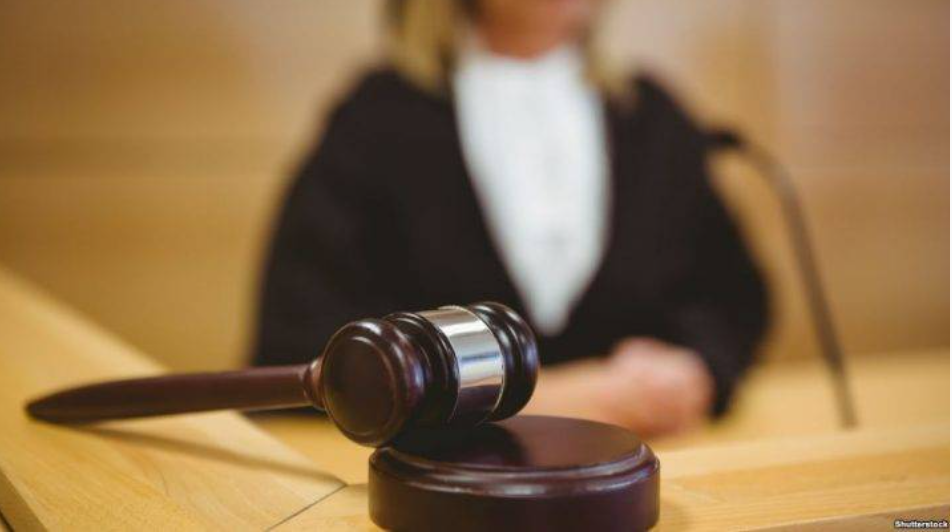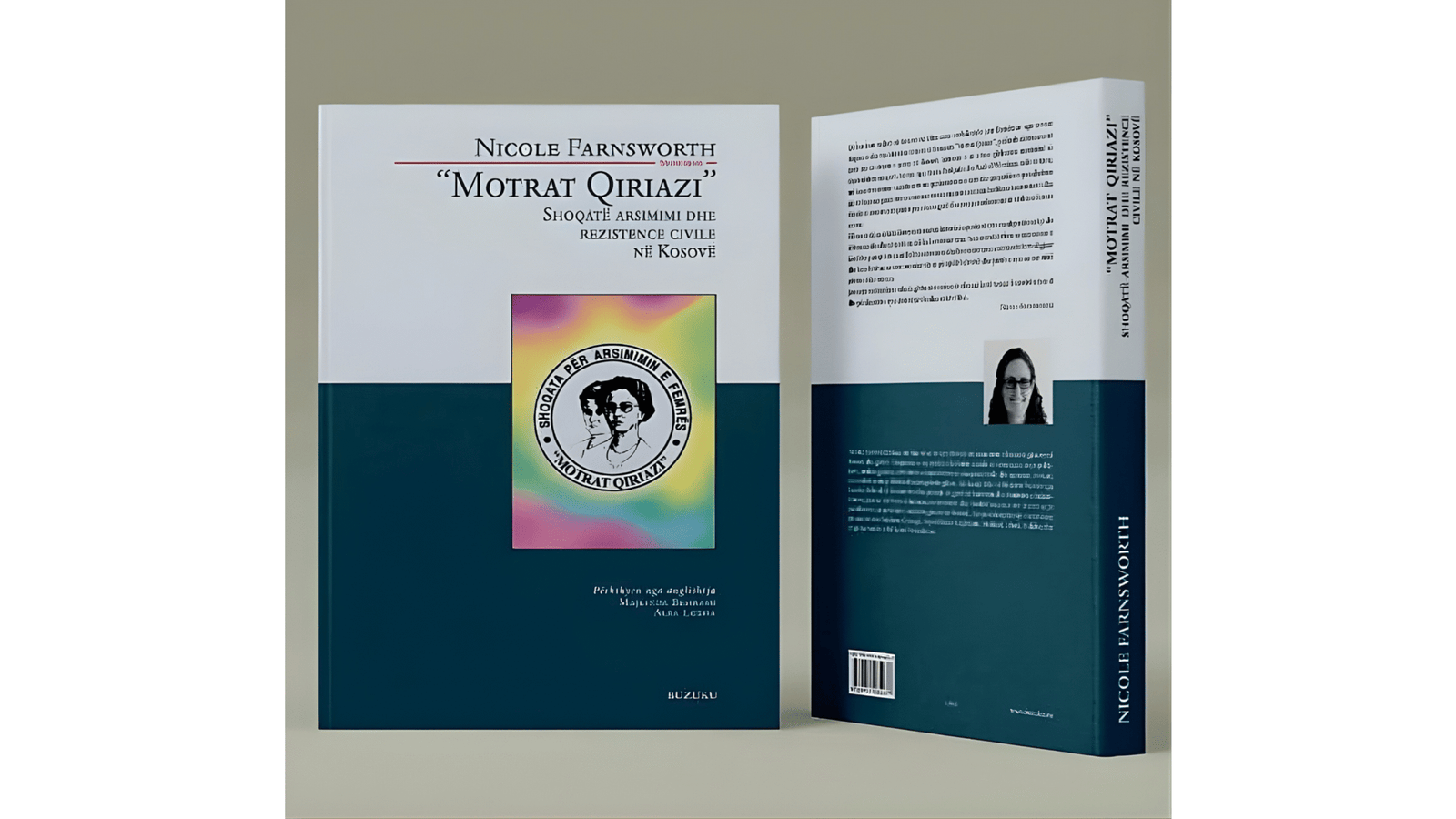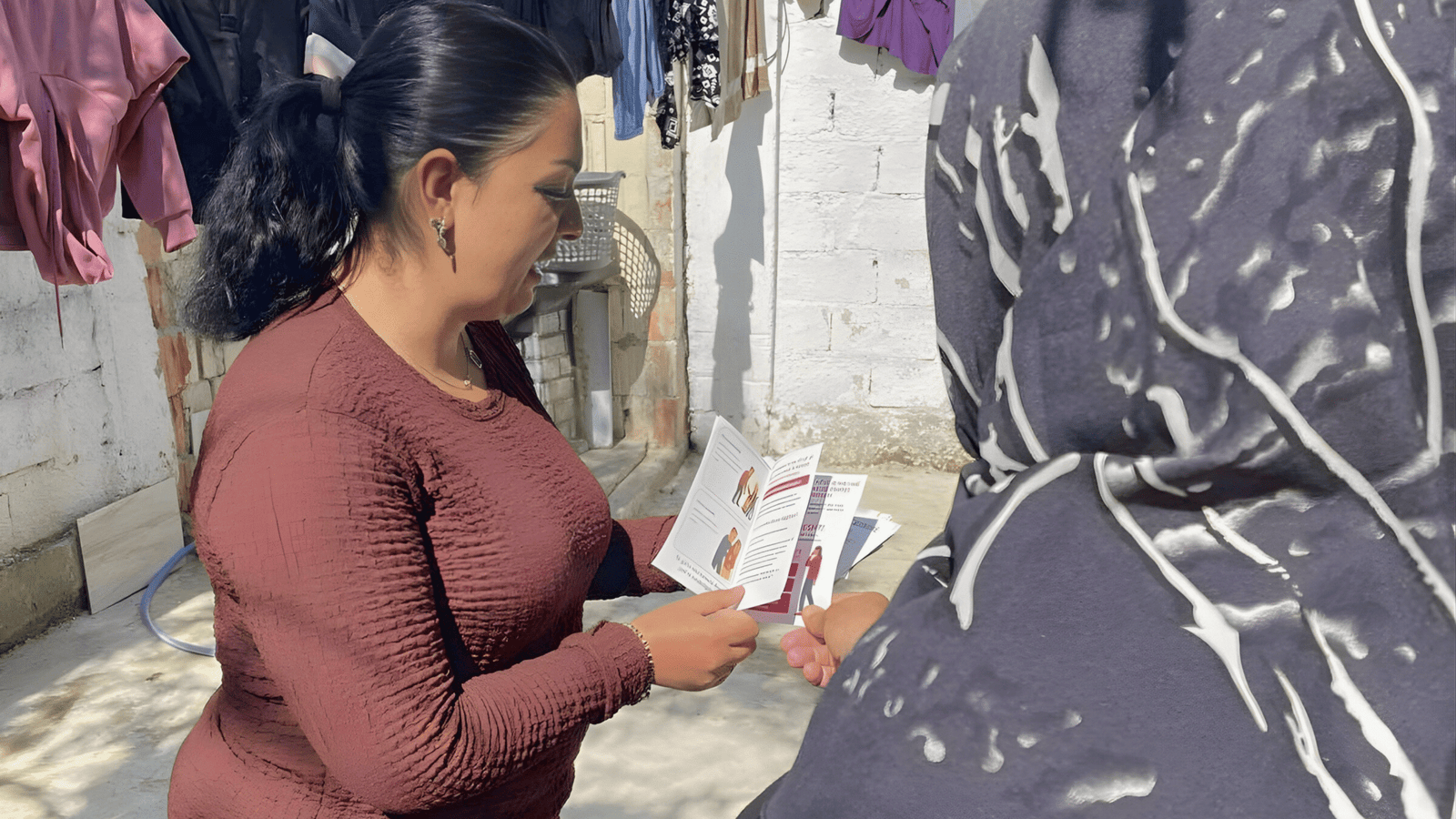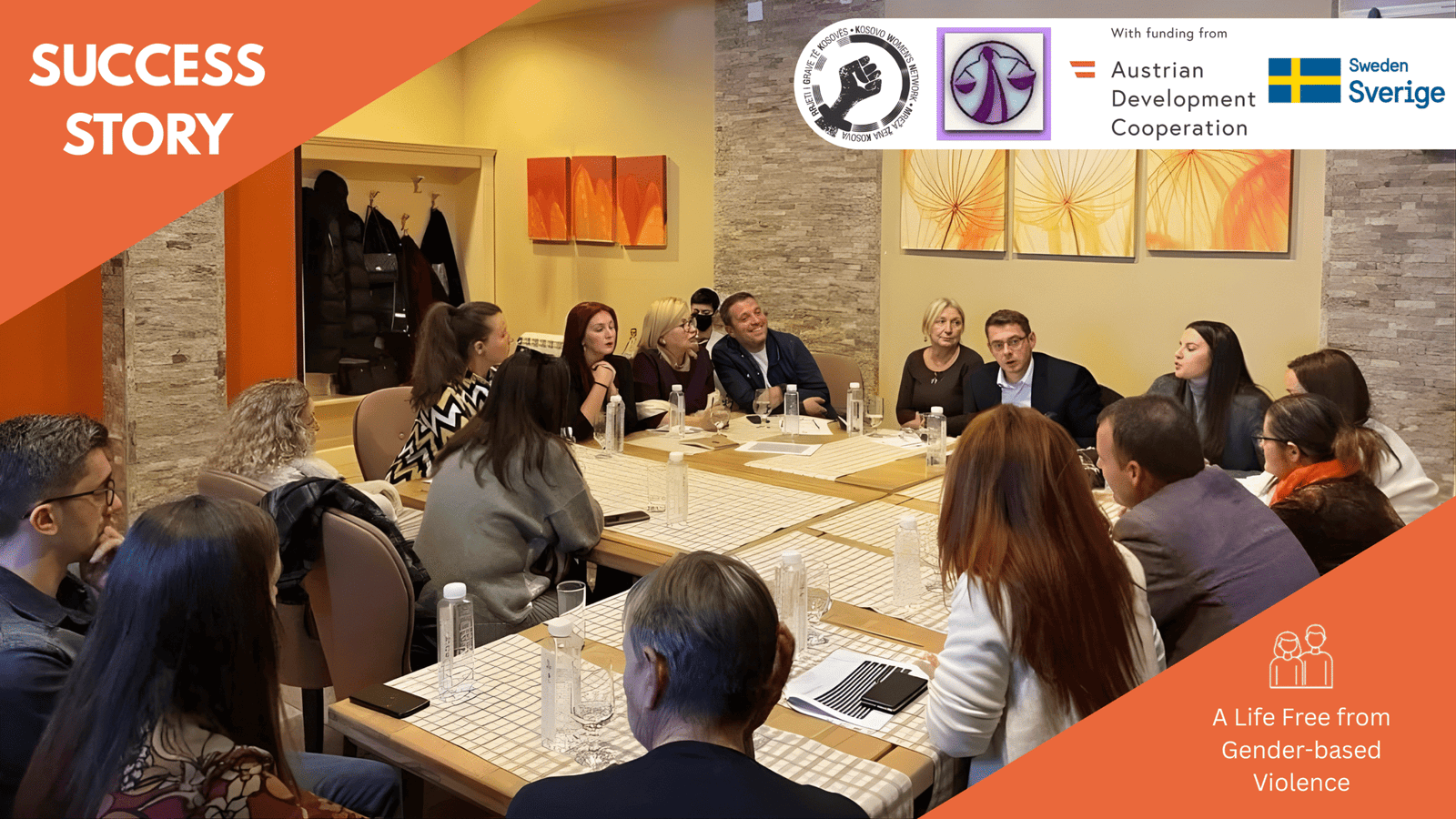From the beginning of the year, victims of domestic violence, gender-based discrimination, and sexual violence have been direct beneficiaries of free legal aid. Additionally, there are other marginalized categories that are entitled to free assistance and legal support. As per the law, civil society organizations or representative organizations of the affected communities can contribute to providing free legal aid. This collaborative effort would be facilitated in partnership with the Free Legal Aid Agency.
Research data indicates that the Free Legal Aid Agency has not yet established a licensing process for organizations providing free legal aid. Consequently, the Agency lacks planned financial or other forms of support for NGOs engaged in offering free legal aid. Nationwide, there are fewer than 10 organizations providing free legal aid, and their capacity building is hindered by various factors. A research study conducted by Internews Kosova reveals that NGOs’ capacities to provide aid have not improved in recent years.
The research findings point out that the issues stem from the Agency itself. The institution has received funding from the German Government to finance mobile legal aid offices. However, this has resulted in an unequal distribution of services across municipalities in the country. Presently, the mobile offices of six municipalities are funded by GIZ on behalf of the Federal Republic of Germany. However, this support is provided through short- and medium-term projects, raising concerns about the sustainability of the mobile centers once the projects are completed.
Flutura Zena, the executive director of the Agency for Free Legal Aid, has highlighted that the financial support from GIZ is set to end on June 30, 2023, as per their agreement.
During the past three years, the Free Legal Aid Agency has received an annual allocation of approximately 440,000 euros from the state budget. In addition to the public funds, the Agency has also benefited from other donations, exceeding 200,000 euros in total over the same period. Despite this financial support, the Agency has faced challenges in fulfilling its obligations, such as maintaining mobile offices, securing sufficient human resources, and conducting awareness campaigns to inform citizens about the services offered by the Agency. Unfortunately, their requests for additional public funds to address these needs have not received a response from the relevant institutions.
In terms of accessibility, the Agency faces difficulties. When questioned about the accessibility of their facilities for people with disabilities, including the presence of ramps, elevators, and appropriate signage for the deaf, the staff acknowledged that out of the 27 municipalities where the Agency operates, only 10 have limited access for people with disabilities, while the remaining 17 have good accessibility.
The Agency has expressed its commitment to improving accessibility for people with disabilities. They strive to secure office spaces that cater to the needs of individuals with disabilities by highlighting the characteristics and requirements of the Agency’s visitors.
Financing of NGOs
Regarding the provision of free legal services and promotion of this service, less than 10 non-governmental organizations are currently engaged in these activities across the country.
The data reveals that organizations providing free legal aid services in Kosovo heavily rely on donor funds due to the absence of a stable financing scheme from the country itself.
One such organization is CEL Kosova, which offers free legal aid services aligned with its mission of fostering a progressive, diverse, and tolerant society for the LGBT community in Kosovo. This community faces targeted attacks, particularly violent acts. According to the organization’s representatives, their entire funding, which does not exceed 6,500 euros, relies on international organizations’ funds.
Another organization, CLARD Kosovo, operates with an annual budget of 160,000 euros for providing legal aid. This funding is provided by the US Embassy, the British Embassy, and the European Commission, without any involvement of the state budget since the organization’s establishment. However, both organizations primarily rely on short-term projects, which do not ensure long-term sustainability.
CEL Kosova acknowledges that they are still working towards achieving stable support from any donor, and they are currently in the process of developing a long-term strategy to address this issue. On the other hand, CLARD Kosovo mentions that their most reliable support comes from the US Embassy in Kosovo, although they also recognize that even this support is not fully dependable in terms of long-term stability.
In addition to financial challenges, both organizations face difficulties in securing suitable workspaces for their activities. CEL Kosova has been engaged in continuous efforts and negotiations with the Municipality of Pristina to obtain the use of a public space as a Drop-In Center, where they can provide free legal aid and other necessary services. However, despite promises, they have not yet gained access to such a space. Similarly, CLARD Kosovo does not possess its own facility, and they rely on utilizing spaces provided by the Centers for Social Work based on agreements for legal clinics in various municipalities.
Another challenge organizations providing legal aid face is the absence of a regulated legal standard, as per the legislation. The Agency responsible for legal aid, including NGOs, has struggled for many years to draft regulations to standardize this work. According to data from the Agency, the regulation for establishing criteria for the provision of free legal aid by non-governmental organizations in partnership with the Free Legal Aid Agency is currently in the draft stage and has been submitted to the Ministry of Justice.
The purpose of the regulation mentioned is to establish a partnership between the Free Legal Aid Agency and NGOs by defining general and special criteria. Additionally, there are several other acts pending, including the Regulation for the establishment of the Complaints Commission, Administrative instruction on fees and compensation for services performed by lawyers in authorized free legal aid, Administrative guidance on procedures for engaging lawyers in authorized free legal aid services, and Administrative instruction for the content of the form for submitting a request for free legal aid.
CEL Kosovo operates in accordance with positive laws that regulate the statute of NGOs, and they have a regulation on confidentiality. CLARD Kosovo has announced that they have regulations for administration and finance, as well as regulations for free legal services, in addition to their statute and work regulations.
Regarding the staff of these institutions providing free legal aid, CEL Kosovo has qualified lawyers and psychologists available for their services, and their recruitment follows a public tendering process. CLARD Kosovo currently has seven lawyers with 7 to 12 years of work experience, two with a bar exam, and 15 external associate lawyers who provide pro bono services. Their recruitment policy adheres to labor regulations and the Labor Law.
In terms of staff capacity building, the Free Legal Aid Agency has taken steps for the professional development of its staff through various trainings, and the staff has been certified by the specialized institution, the Institute of Public Administration of Kosovo (IKAP). However, they note that due to the specific nature of the Agency service, training opportunities for their staff have been limited. They emphasize the need for continuous training for the staff providing legal services to ensure their alignment with the demands and needs of the citizens they serve.
The purpose of the mentioned regulation is to establish a partnership between the Free Legal Aid Agency and NGOs by defining general and special criteria. Additionally, there are several other acts pending, including the Regulation for the establishment of the Complaints Commission, Administrative instruction on fees and compensation for services performed by lawyers in authorized free legal aid, Administrative guidance on procedures for engaging lawyers in authorized free legal aid services, and Administrative instruction for the content of the form for submitting a request for free legal aid.
CEL Kosovo operates in accordance with positive laws that regulate the statute of NGOs, and they have a regulation specifically addressing confidentiality. On the other hand, CLARD Kosovo has announced that in addition to their statute and work regulations, they have regulations in place for administration and finance, as well as regulations specifically related to free legal services.
The research aimed to highlight both the quantitative and qualitative aspects of the staff working in these institutions that provide free legal aid. CEL Kosovo has demonstrated that they have qualified lawyers and psychologists available for their services, and their recruitment process follows public tendering procedures.
CLARD Kosovo currently employs seven lawyers with work experience ranging from 7 to 12 years, two of whom have passed the bar exam. Additionally, they have 15 external associate lawyers who offer pro bono services. The recruitment policy of CLARD Kosovo is based on labor regulations and the Labor Law.
In relation to efforts to increase the capacities of staff with professionals from inside or outside the organization, Agency for Free Legal Aid has shown that the personnel office has taken steps for the professional development of staff through various trainings. The staff has been certified by the specialized institution, the Institute of Public Administration of Kosovo (IKAP). However, they indicate that due to the specificity of the Agency service, training for Agency staff has been limited. They emphasize that staff providing legal services need continuous training to meet the demands and needs of citizens. Additionally, the agency, with the support of USAID-JAK, has trained internal staff as trainers, which, according to evaluations, provides on-the-job training for officials. The NGOs have not mentioned any other trainings apart from personal training for their staff.
Regarding the commitment of students and volunteers to contribute to the provision of free legal aid and establish mutually beneficial collaborations, Agency mentioned the commitment of students to carry out practice and contribute to the service. The agency promotes the opportunity for students to engage in this service annually through the Free Legal Aid Week. On the other hand, CEL Kosovo states that there are no engaged volunteers. CLARD Kosovo has shown that supporting young lawyers within the internship program, including local and foreign students, is one of the pillars of their organization’s mission. They have also counted professional volunteers such as lawyers, professors, judges, and prosecutors, as well as volunteers from international partner organizations.
Considering the volume of cases combined with the socio-economic situation in the country, the research aimed to uncover whether the respective providers had a certain policy on how they handle cases, specifically if a certain nature or specificity gives priority to certain cases or if the work is carried out based on the “first in time, first in right” principle. ANJF, with the support of USAID, has drafted guidelines for processing cases of free legal aid, giving priority to cases of victims of violence and marginalized groups. They also have a Manual of legal aid practitioners in Kosovo for civil, family, and property-legal matters, and are in the process of drafting a manual for administrative issues. CEL Kosovo has shown that priority is given to cases with higher risk.
In contrast, at CLARD Kosovo, the policy for the treatment and management of cases is regulated by labor regulations and the regulation of free legal services.
Regarding the challenges identified by the entities themselves, all three organizations mentioned the financial sustainability component as the most difficult. Agency enumerated the consequences of financial limits, including the inability to extend free legal aid fairly and equally to all municipalities of the Republic of Kosovo, the need for advancement towards unifying free legal aid throughout the country, insufficient staffing, the need to raise awareness among the public and interest groups about Agency’s services, the provision of budget funds for staff training, the implementation and completion of amendments to the Law on free legal aid, as well as the provision of work spaces for Agency in public facilities in Pristina. CEL Kosovo also identified the lack of self-space as a problem.
Considering that Kosovo is a relatively new country and has benefited from the experiences of other countries, part of the research aimed to explore homologous models used elsewhere. Officials of ANJF claim that they provide free legal aid to various international countries and have observed that the per capita budget model is achievable. They believe that compared to neighboring countries, the Republic of Kosovo has the best system of free legal aid. CEL Kosovo indicated that they combine and adapt models from homologous organizations within the context of their country. However, CLARD Kosovo, with its long experience in providing this service, mentioned that when the organization started its activities, there was no local organization or institution offering free legal services. They adopted a working model from organizations in European Union countries and the USA. Despite being offered free of charge, the quality of the service is not questioned in countries with advanced legal systems.
According to Agency, the satisfaction rate based on feedback from parties involved in the last 2 years is over 96%.
Free legal aid refers to the international obligation of states to ensure access to justice for individuals who cannot afford legal services. The law specifies the categories of people eligible for this aid, primarily focusing on those in need of state assistance. However, in cases where the interest of justice demands it, assistance may be provided to individuals outside these categories as well.
Within the European Union, the importance and function of free legal aid are widely acknowledged, and all member countries offer such services. However, there are no standardized criteria or uniform standards among EU countries, making it challenging to measure and evaluate the quality of service provision across different jurisdictions.
In Kosovo, the legal framework for free legal aid is based on the European Convention on Human Rights and the Charter of Fundamental Rights of the European Union. The main regulatory act governing free legal aid in Kosovo is the Law on free legal aid, which is derived from the country’s highest legal act, the Constitution of the Republic of Kosovo. Additionally, other laws, such as the Law on Civil Procedure and the Code of Criminal Procedure, contain provisions related to free legal aid. However, the lack of harmonization among these provisions poses challenges in legal practice.
The structure of providing free legal aid in Kosovo involves multiple entities. As per the Law on free legal aid, assistance is provided by the Agency for Free Legal Aid through its regional and mobile offices, as well as by lawyers and non-governmental organizations partnering with the Agency. However, the primary providers of free legal aid in practice are the Chamber of Advocates of Kosovo and the Institution of the People’s Advocate. The European Commission has identified two types of schemes for providing free legal aid in Kosovo: one involving lawyers appointed by the court (mainly in criminal cases) and the other involving the Free Legal Aid Agency, which handles cases other than certain criminal cases.
With recent amendments to the law, additional categories of individuals are eligible for free legal aid, including victims of sexual violence during the war in Kosovo in 1998-1999, witnesses dependent on victims of domestic violence, minor victims, children living in social care institutions, and children under guardianship seeking to initiate a legal process without the approval of their legal guardian or against their legal guardian.







